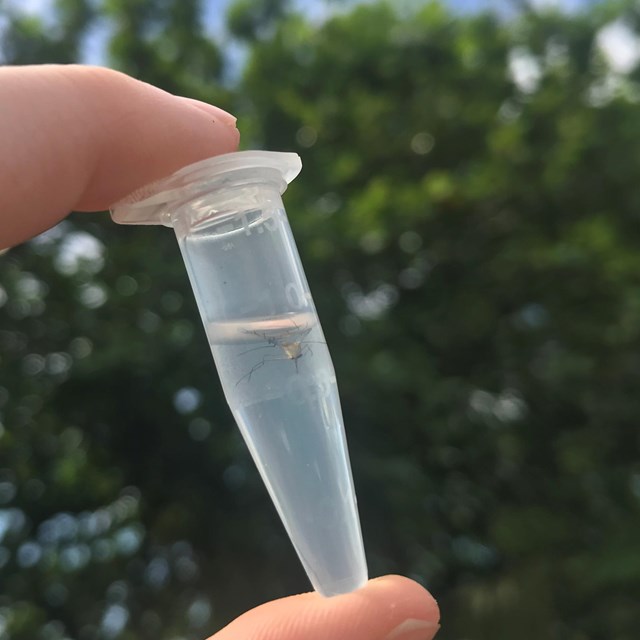
NPS Photo / J. Prugsawan Haleakalā National Park is working to save Maui’s forest birds. Helping the birds means controlling mosquito populations, which is trickier than it sounds. Standard control measures like traps don’t work in the remote forests where these birds live. Spraying pesticides to kill mosquitoes could harm the watersheds both birds and humans rely on for water. In the meantime, the park is controlling other threats to forest birds. By taking steps to reduce feral animals and predators, improve the native landscape, and monitor these populations, Haleakalā National Park is on the frontline of protecting the native birds of Hawaiʻi. But in order to secure a better future for the forest birds, the mosquito problem may need to be tackled with some innovative methods. One method that shows promise is using Wolbachia. Wolbachia is a naturally occurring bacteria that already exists in approximately half of global insect species, including here in Hawaiʻi. Male mosquitoes infected with the bacteria can mate but don’t produce offspring, causing populations to crash. This technique has been used successfully on islands around the world as well as in China and other places throughout the United States. Here on Maui and in Haleakalā National Park, fewer mosquitoes would mean more birds. You can help!Climate change is a global issue. Wherever we live, even small changes in our day-to-day lives can make a difference miles away. Check out these tips to reduce our climate impact and mālama ʻāina (take care of the land) we call home.
|
Last updated: June 25, 2021



